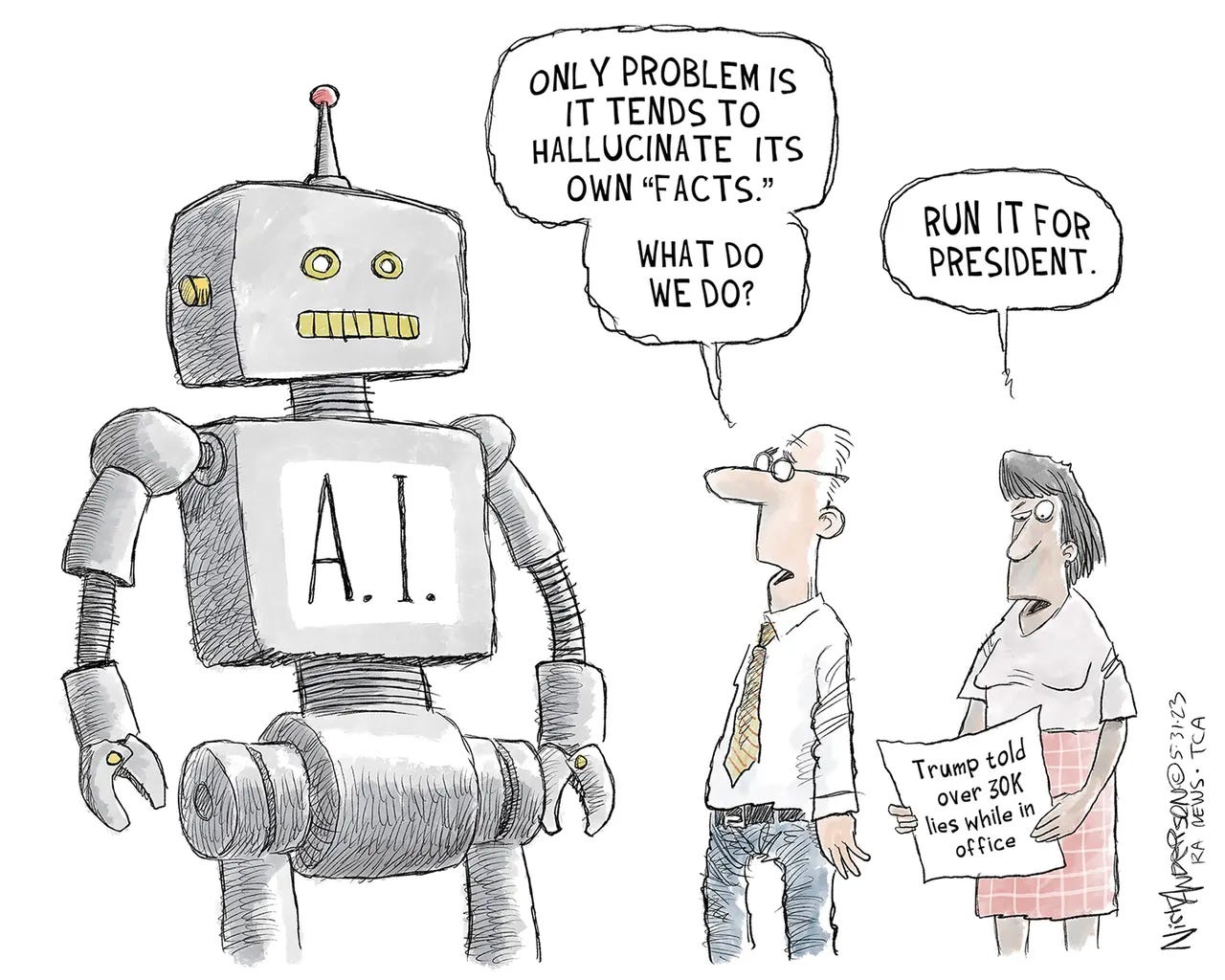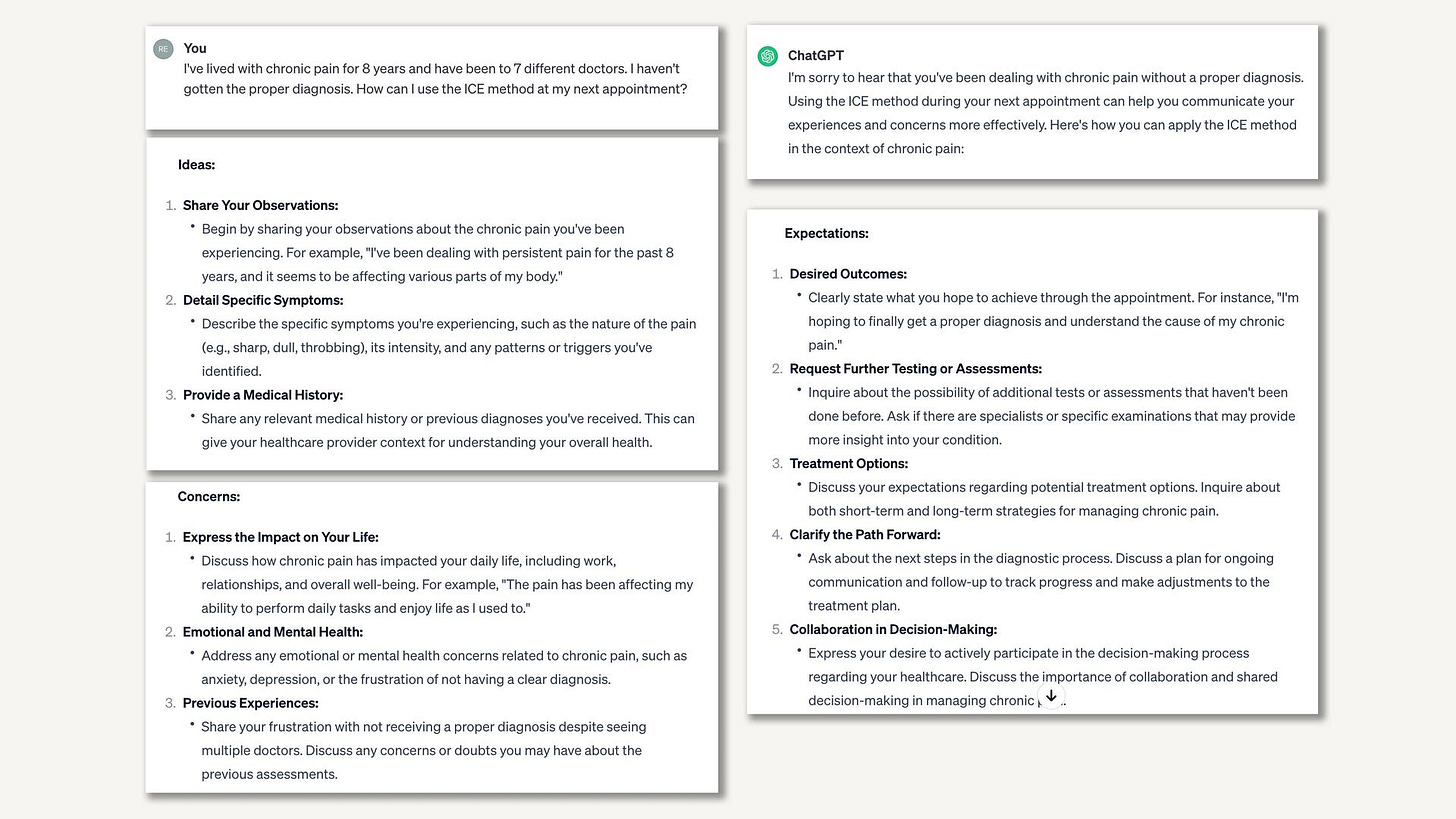Is Human Arrogance the Psychological Barrier to Embracing AI?
Hello Approachists, good morning!
The first edition of 2024 is here. With the new year comes a new look – I've restructured the content to focus more on how AI can help us upskill and reskill, enhancing our careers and happiness.
And about the business section? It's been removed because I'm planning to start a separate newsletter dedicated to analyzing AI business. I'll share the info with you next week.
Today's main topics:
What psychological barriers do people face when embracing AI? How can we accept AI and tap into its full potential?
Career development and transitioning in the AI era, along with stories from others.
How to ensure human creativity’s advantage and value.
How to seek medical help through ChatGPT and keep mental health.
Finally, we have 5 productivity tools to explore – let’s dive in!

AI is transforming our lives across many areas. However, you've probably noticed many people around us hold biases or even hostility towards AI. A research team from Harvard and the University of Melbourne explored and confirmed these mixed feelings toward AI tools, including robots and large language models like ChatGPT.
Understanding the psychological barriers to AI adoption is key to its full utilization. This study provides an insightful analysis of these barriers, ways to address them, and an evaluation of the risks and benefits.
Five Key Barriers & Overcoming Suggestions:
Opacity: AI's 'black box' nature can cause distrust. Solution: Offer clear, balanced explanations of AI functioning.
Unfeeling Nature: AI's lack of perceived emotion limits trust. Solution: Make AI more relatable or redefine emotional tasks objectively.
Rigidity: AI's perceived inflexibility can reduce trust. Solution: Emphasize AI's learning and adaptation capabilities.
Autonomy: AI's independence can be seen as a threat. Solution: Ensure AI maintains human control and supports human expertise.
Non-Human: AI being non-human can trigger speciesism. Solution: Encourage human-like attributions to AI.
For more, read the University of Melbourne's website here, or the full article on [Nature].
Skill Evolution
We're all more malleable than we give ourselves credit for. We adapt to our environment.
- Daniel Shapero
How to Get a Job in the Age of AI
LinkedIn COO Daniel Shapero discusses AI's profound impact on job roles, stressing the importance of AI skills and human adaptability for future career success. Read or listen at [Bloomberg].
Why it matters: The biggest uncertainty, and likely the most significant shift, is the rewriting of nearly every role in the AI context. This is particularly crucial advice for Gen Z workers entering a rapidly changing job market.
Effective Generative AI Workplace Use
For safe generative AI use in workplaces, avoid bias, protect sensitive data, choose secure AI programs, verify AI accuracy, disclose AI involvement, and be cautious of copyright issues. Discover how on [WSJ].
Why it matters: This underscores the dilemma companies face - seeking efficiency with new tools while trying to minimize risks. However, the use of shadow AI increases both corporate and individual career risks, so it's crucial to remember to follow these rules.
Reinvention Tales
How Generative AI Aids Engineer Upskilling
Generative AI offers engineers with affordable, accessible, and personalized learning tools for upskilling and enhancing their abilities in rapidly evolving tech areas. Get some insights on [Built In].
Why it matters: This AI-driven upskilling democratizes access to advanced tech education at a lower cost.
Career Shifts to AI for Growth Opportunities
Professionals from various fields are moving into AI careers, drawn by the sector's growth and the chance to apply their skills in a dynamic tech landscape. Read the stories of 5 workers transitioning to AI careers from [Business Insider].
Why it matters: This trend underscores AI's role as a driver of career growth and diversification.
Growth Gateway
Top Free AI Courses for Career Starters
The article lists five free AI courses for 2024, including offerings from Google, Microsoft, and Harvard, providing foundational knowledge and practical skills for AI career aspirants. Get more info on [AMB].
Cognitive Compass

Navigating Generative AI's Future Challenges
Generative AI emerged in 2023, taking the world by storm, and its future impact will be shaped by how we address unresolved issues such as bias, copyright infringement, and job transformations. Read more on [MIT Technology Review].
Preserving Human Creativity Amid AI
Despite AI's rise in art, human creativity remains unique due to personal experiences and emotional expression, which AI lacks. Artists like Rosenthal emphasize the distinct, communicative nature of human-made art. Read more about the workings of drawing AI and the human art creation process and motivation on [The Street].
Why it Matters: With tools like Midjourney and DALL-E producing convincingly real artworks, artists must identify their unique value, showcasing the true essence of humanity.
Life Enhancer

Remember: Use your ICE dialogue to be specific and for asking questions you often forget or hesitate to ask. For example:
"I am a 50-year-old woman with prediabetes and I feel like my doctor never has time for my questions. How should I address these concerns at my next appointment?"
ChatGPT As AI Doctor in Self-Diagnosis
ChatGPT may aid in early self-diagnosis, offering personalized, quick information synthesis. It's changing how patients interact with health systems and understand their symptoms. [CNET]
Why it Matters: If used cautiously & reasonably, it offers a new, efficient way to explore health concerns, enhancing patient knowledge and healthcare communication.
AI's Impact on Workplace Connections
While AI can boost productivity, it might also lead to loneliness by cutting down on some small but powerful human interactions in the workplace. [Business Insider]
Why it matters: You should focus on your own job satisfaction and mental health. Balancing AI with initiatives that promote teamwork and empathy is key. While AI may increase our need for human interaction, it's just a theory.
Productivity Toolkit
Nextprep AI: Enhances skills with AI-powered mock interviews. [Link]
OpenTaskAI: A talent marketplace connecting AI freelancers with business needs. [Link]
Cliptutor: AI-powered platform for creating and extracting educational resources. [Link]
HabitLoop [iOS]: A routine planner app that helps track habits and build a daily routine. [Link]
WordSnap [iOS]: A language learning app that uses AI to create flashcards from images. [Link]




